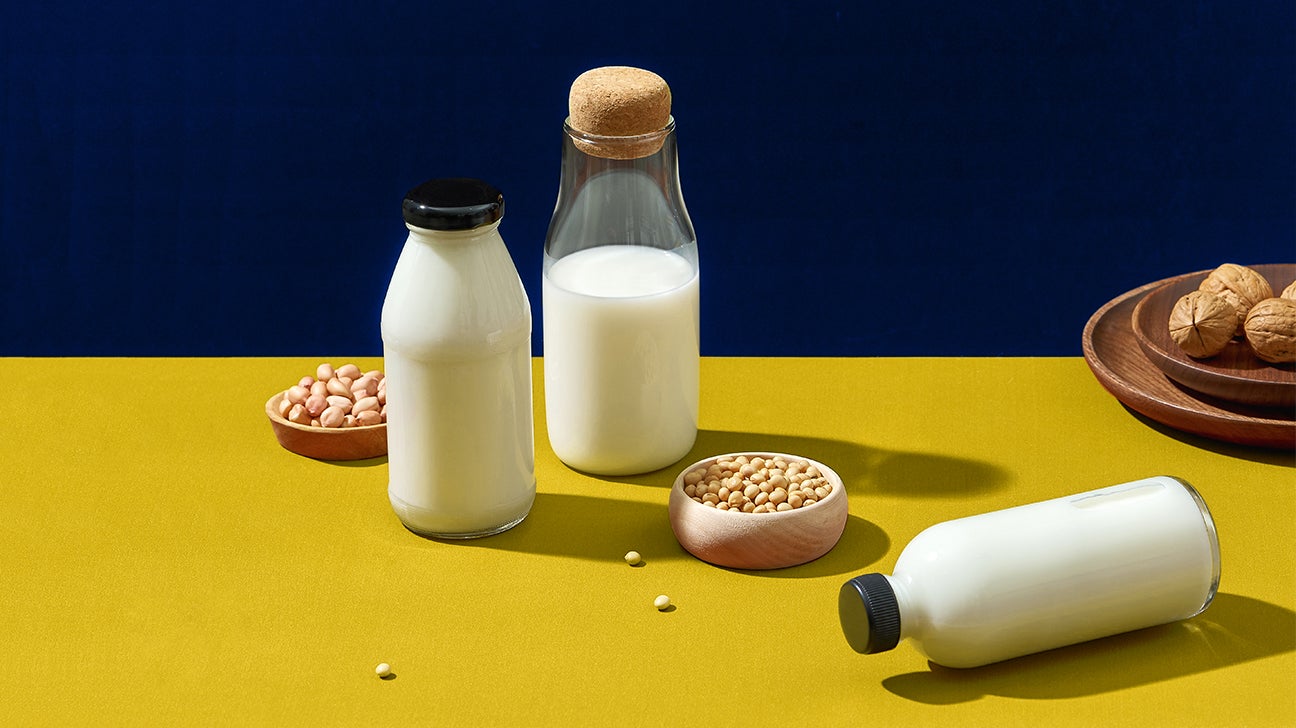When you think of eating seaweed, you probably think of spicy tuna rolls alongside a steaming bowl of edamame.
But surprisingly, a common food additive, carrageenan, comes from seaweed and is found in soy milk, coffee creamer, turkey bacon, and ice cream. What the kelp?
If you’re wondering what that means, if it’s safe, and what carrageenan even is, we’ve got you covered. Here’s everything you need to know about carrageenan.
Fast facts on carrageenan
Carrageenan is a common food additive that’s derived from seaweed. It’s used as a thickener and emulsifier and commonly found in:
- processed dairy products: cottage cheese, ice cream, and coffee creamer
- dairy alternatives: plant-based milks, vegan cheese, and vegan yogurt
- processed meats: deli meat, chicken sausage, and turkey bacon
Carrageenan is an approved additive in the United States (meaning the FDA says it’s safe), but there’s still controversy surrounding it. Some studies have linked it to:
- inflammation
- intestinal tumors
- dysbiosis of the gut
- weakened immune system
- glucose intolerance
But other studies suggest carrageenan doesn’t pose any problems in the amounts we consume it — and that it may even have some benefits.
Our verdict: More research is needed to truly understand how consuming carrageenan affects human health. (Ugh.)
What is carrageenan?

Carrageenan is a common food additive that’s derived from Irish Moss, a type of red seaweed that grows off the Atlantic coast in Europe. Blarney!
It’s an excellent thickener and emulsifier — meaning it can thicken foods and keep ingredients from separating. It’s most commonly found in processed dairy and dairy alternative products. Mmm, just where we like our seaweed derivatives!
But really, though, carrageenan’s gelatin-like properties have paved the way for things like plant-based milks and creamers, vegan ice cream, vegan yogurt, and other dairy alt products.
Alas, like all good things in life, it has a dark side… possibly.
Is carrageenan safe?
According to the FDA, carrageenan is totally safe. In fact, it’s GRAS — Generally Recognized As Safe. (Yup, that’s a thing!)
However, there’s been a years-long controversy over carrageenan that rages on.
According to a 2018 review, several animal studies have noted a link between carrageenan and digestive issues like inflammatory bowel disease and dysbiosis of the gut (which means your gut bacteria aren’t living their best lives).
Some research also suggests that carrageenan can damage the lining of the gut, cause intestinal tumors, and weaken the immune system.
However, most of these effects were found from a specific type of carrageenan used in research studies called poligeenan. It’s a possible human carcinogen, which means there’s some evidence it may cause cancer. And it’s not an FDA-approved food additive, so you won’t find it in food.
On the other hand, research from 2014 suggests that carrageenan seems to have some health benefits too — like strengthening immune activity and acting as an antioxidant.
But most of these studies were done in test tubes or on animals, using larger quantities of carrageenan than are used in the food we eat. So, does any of this even apply to us?
What the human research says
Although it’s pretty limited, there is some research investigating the effects of carrageenan on human beings.
Researchers have noted a link between carrageenan and inflammatory bowel disease. A small 2017 study suggests that carrageenan may cause relapse in people who have ulcerative colitis that’s in remission. No, thanks!
Other research suggests a link between carrageenan and poor blood sugar control, which can lead to inflammation, weight gain, and type 2 diabetes.
Until there’s more definitive research on the types of carrageenan used in food and how they affect us, there are compelling reasons to keep eating carrageenan (it’s made dairy alts a THING) and compelling reasons not to (it might cause an IBD flare-up).
What foods contain carrageenan?
Carrageenan is mostly found in dairy products and dairy alternatives but is also commonly added to processed meat products (especially if they’re made from leaner meats like turkey or chicken).
Here’s a short list of some of the most common carrageenan-containing foods:
- processed dairy products: half-and-half, coffee creamers, heavy cream, yogurt, ice cream, ready-to-drink protein shakes
- dairy alternatives: vegan coffee creamers, plant-based milks, dairy-free ice cream, vegan yogurts
- meats: deli meats, hot dogs, other low fat processed meats like turkey bacon and chicken sausage
Avoiding foods with carrageenan
Although it appears to be mostly safe, you might want to avoid carrageenan if you have digestive problems — especially if you have an inflammatory bowel disease like ulcerative colitis or Crohn’s disease.
Unfortunately, saying carragee-nah means you’re gonna be checking a lot of ingredient labels (like, all of them). Even if you avoid dairy and dairy alternatives, carrageenan is a common enough food additive that you’ll need to check the labels on all processed foods you include in your diet.
And because it’s vegan and derived from natural seaweed, it’s much more likely to be used in natural/healthy/plant-based food products — so your otherwise healthy snacks might be hiding a little seaweed surprise.
Luckily, some of the more savvy food manufacturers have recognized the demand for carrageenan-free foods and label their products “carrageenan-free” so you can avoid an ingredients scavenger hunt.
You can also keep an eye out for the “USDA Organic” label, which the National Organic Standards Board voted to remove from any products containing carrageenan in 2016.
tl;dr
- Carrageenan is a seaweed-based food additive that’s generally pretty safe, but there is some controversy surrounding its safety.
- It’s found in dairy products, dairy alternatives, and some processed meats. Because it’s naturally derived, it’s also much more likely to be hiding in “healthy” processed foods.
- It’s been linked to inflammation and digestive damage, but the jury is still out on whether it’s definitively harmful to human health.
- Avoiding carrageenan is no easy task. It will require meticulous label-checking. But more food manufacturers are getting on board with offering carrageenan-free options.

0 Commentaires